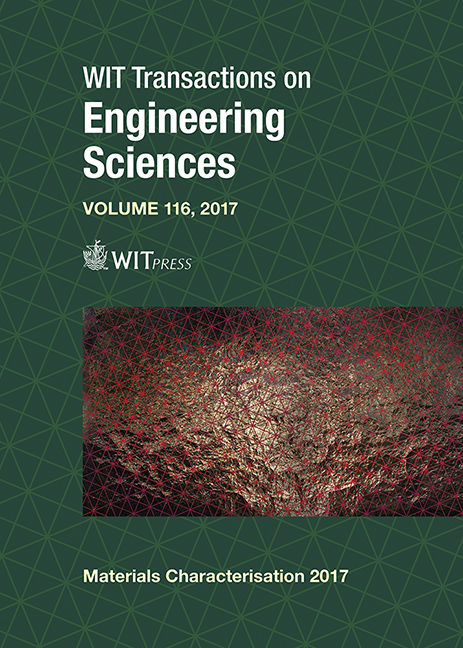EFFECTS OF THE MOLECULAR WEIGHT OF POLYCARBONATE ON THE MECHANICAL PROPERTIES OF CARBON FIBER REINFORCED POLYCARBONATE
Price
Free (open access)
Transaction
Volume
116
Pages
9
Page Range
327 - 335
Published
2017
Size
421 kb
Paper DOI
10.2495/MC170341
Copyright
WIT Press
Author(s)
KAZUTO TANAKA, KEISUKE TAKEMOTO, MASAHIRO SUZUE, TSUTAO KATAYAMA
Abstract
Carbon Fiber Reinforced Thermoplastics (CFRTP) attract attention in the automotive industry because of their high specific strength and short production cycle. As Polycarbonate (PC) is excellent in terms of impact resistance, dimensional stability and heat resistance, as compared with other thermoplastic resins, it is expected to be used for CFRTP. Although PC with higher molecular weight has better impact resistance, due to its higher viscosity, it is difficult to impregnate into the continuous fibers. Therefore, the effects of molecular weight of PC on mechanical properties of Carbon Fiber Reinforced Polycarbonate (CF/PC) should be investigated. In this study, CF/PC laminated composites were molded with two kinds of PC with different molecular weights, and their moldability and mechanical properties were evaluated. CF/PC using PC with a high molecular weight tended to show a higher void fraction than that with a low molecular weight. CF/PC using PC with a high molecular weight showed higher fiber/matrix interfacial shear strength in single fiber pull-out tests, and this result is considered to be the effect of the larger residual stress to the fiber, due to the larger difference in specific volume of PC with a higher molecular weight. CF/PC using PC with a high molecular weight showed higher interlaminar strength, bending strength, and absorbed energy in impact tests.
Keywords
carbon fiber, polycarbonate (PC), thermoplastics, CFRTP, molecular weight, fiber/matrix interfacial shear strength, pull-out test, residual stress, drop weight impact test





